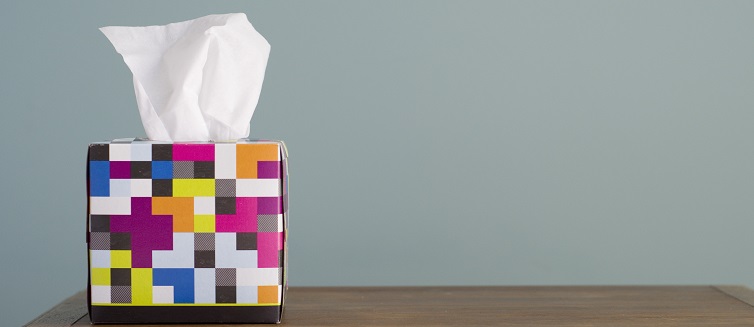Though you can’t see them, germs from your sneeze spread farther than you think. Learn how to properly cover your sneeze and prevent the spread of illnesses.
Never Miss a Beat!
Sign up for our family health newsletter
Thank you for subscribing!
You can now select the specific newsletters you'd like to receive.
You are already subscribed.
Subscribe to more newsletters in our email preference center.
Sorry, an error occurred. Please try again later.
Get Healthy Tips Sent to Your Phone!
Why Do I Need to Cover My Sneeze?
According to a study, germs from your sneeze can travel up to 200 times farther than the water particles released in your sneeze. These germs can form an invisible cloud that can drift across a large room and beyond.
The germs from your sneeze also can live for weeks on surfaces, so the effects of a sneeze are long lasting.
By covering your nose or mouth the right way, you can significantly reduce the spread of germs. Your friends and co-workers will thank you, since correctly covering a sneeze lessens the possibility they will catch a cold or virus.
How to Properly Cover a Sneeze or Cough
When you feel a sneeze or cough developing, the best way to prevent the spread of germs is to grab a tissue and be sure to:
- Sneeze or cough into the tissue
- Dispose of the tissue
- Thoroughly wash your hands with soap and water
If you cannot quickly find a tissue or other disposable towel to sneeze or cough into, the next best course of action is to sneeze into the crook of your elbow. Bend your arm, and make sure you sneeze into, not over, your elbow.
In the event you sneeze or cough into your hands, don’t panic. Find the nearest sink and wash your hands as soon as possible. On your way to the sink, try to touch as few surfaces as possible to reduce the spread of germs.
The best way to prevent the spread of germs when you are sick, however, is to stay at home so you do not infect others.
So, the next time you have a cold or feel a sneeze coming on, make sure you have tissues handy to stop the spray of germs and keep others healthy.
About Primary Care
The relationship with a patient and their primary care doctor can be extremely valuable, and that’s what you get with UPMC Primary Care. When you work with a primary care physician (PCP), you develop a lasting relationship. Your doctor will get to know you and your history and can plan your treatments accordingly. Our PCPs offer a variety of services, including preventive care and treatment for both urgent and chronic conditions. With dozens of UPMC Primary Care locations across our network of care, you can find a PCP close to you. Schedule an appointment today.
